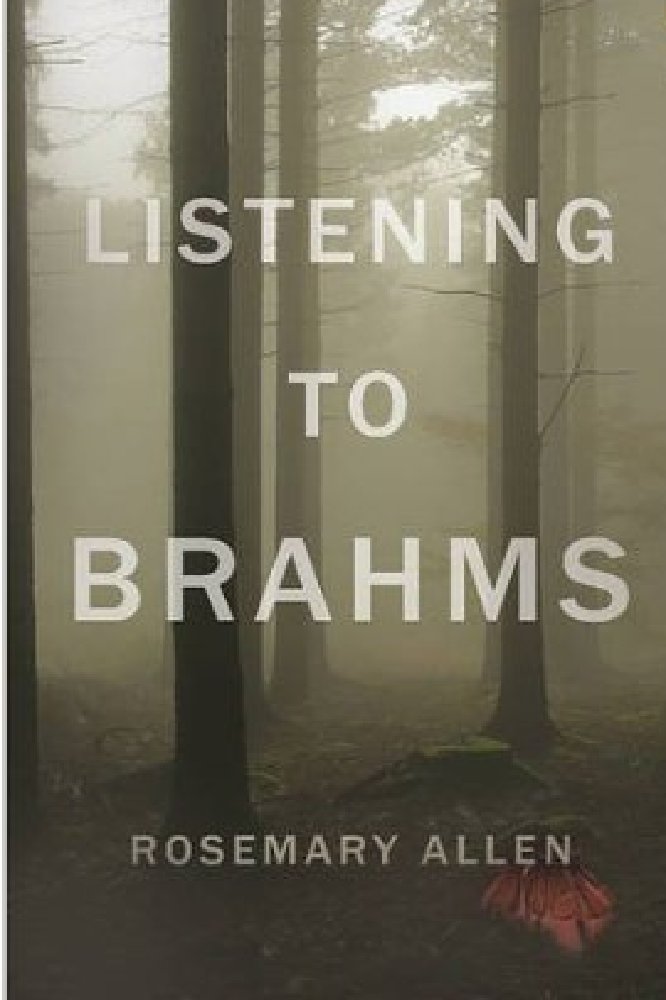
Listening to Brahms
Listening to Brahms is the story of Margaret, who is visiting her sister and her husband at Blackheath Vicarage for a family Christmas in 1989. She finds the diary she kept during a school exchange visit to Germany in the summer of 1954 and painful memories of that time come flooding back. She remembers hearing a Brahms rhapsody being played on the piano and at the age of 17, believed she had found the love of her life. Thirty-five years later, when she hears the same music being played, she begins to fall in love all over again.
Why do you think a diary is such a good device for storytelling?
A diary gives the reader direct access to what a character is doing and feeling at the time of writing it. I used quotations from the diary I kept during my visit to Germany as a teenager, to give me an accurate picture of what life was like there at that time – although of course the plot is entirely fictitious.
The inspiration for the story came from pictures you found from your class trip to Germany; can you expand on this for us a little bit?
One of the themes of the novel is the ability of music and pictures to bring back memories of the past. Without photographs, it is very difficult to remember faces and places. However, my descriptions of the characters in the novel don’t actually correspond to my photos – for obvious reasons.
Why is the song – ‘Rhapsody No 2 in G minor’ – so important to you?
Whenever I hear the piano piece, ‘Rhapsody No 2’ by Brahms, I’m always reminded of when I first heard it being played by a student in Germany. The narrator of the novel, Margaret, also hears it in Germany, and then, thirty-five years later, hears it again being played on the piano, which causes her to begin to fall in love with the pianist.
You have written many short stories in your writing career. What can you tell us about these?
All my stories are very different – some are humorous in theme and some more serious. They have all been written as the result of apparently insignificant incidents occurring throughout my life – for example, seeing a serious young man walking down a street, hearing a piece of music or noticing someone wearing a certain colour combination. My story, ‘The Onion Man’, was read on Radio 4 by Helen Lederer and was written after I noticed that the butter I was spreading on some toast tasted of onions, making me think of possible reasons for this.
Do you have a preference between short stories and novel writing?
I suppose writing a novel is ultimately more satisfying, but writing short stories gives a wonderful opportunity to experiment with various styles. This was particularly useful when I was still working and found it difficult to commit to writing anything longer.
Music appears in a lot of your writing; how difficult is to convey the sounds of music in your work?
Very difficult, is the short answer. All you can do is describe the emotions and memories the music conjures up and then leave the reader to imagine the rest.
You are not only a listener of music but a participant, in what way?
I have always sung in a choir, though, which is a very enjoyable way of keeping fit – and of having a good social life!
Which authors do you most like to read?
I try to read as much contemporary fiction as I can, but a few writers stand out particularly – Penelope Lively, Graham Swift, Ian McEwan, Kate Atkinson, Julian Barnes for example – the list could go on and on, but I’m not a fan of ‘chick lit’, fantasy or science fiction.
What is next for you?
I’m already beginning to work on my next novel, which is set in the late 18th century, so it will be very different from Listening to Brahms. The characters are a surgeon and his family living in the town of Wareham in Dorset – not the very poorest or the richest, but people somewhere in between. It will inevitably involve a musical theme, but I haven’t quite decided on the whole plot yet. And I also hope to bring out a book of my short stories, perhaps next year.

